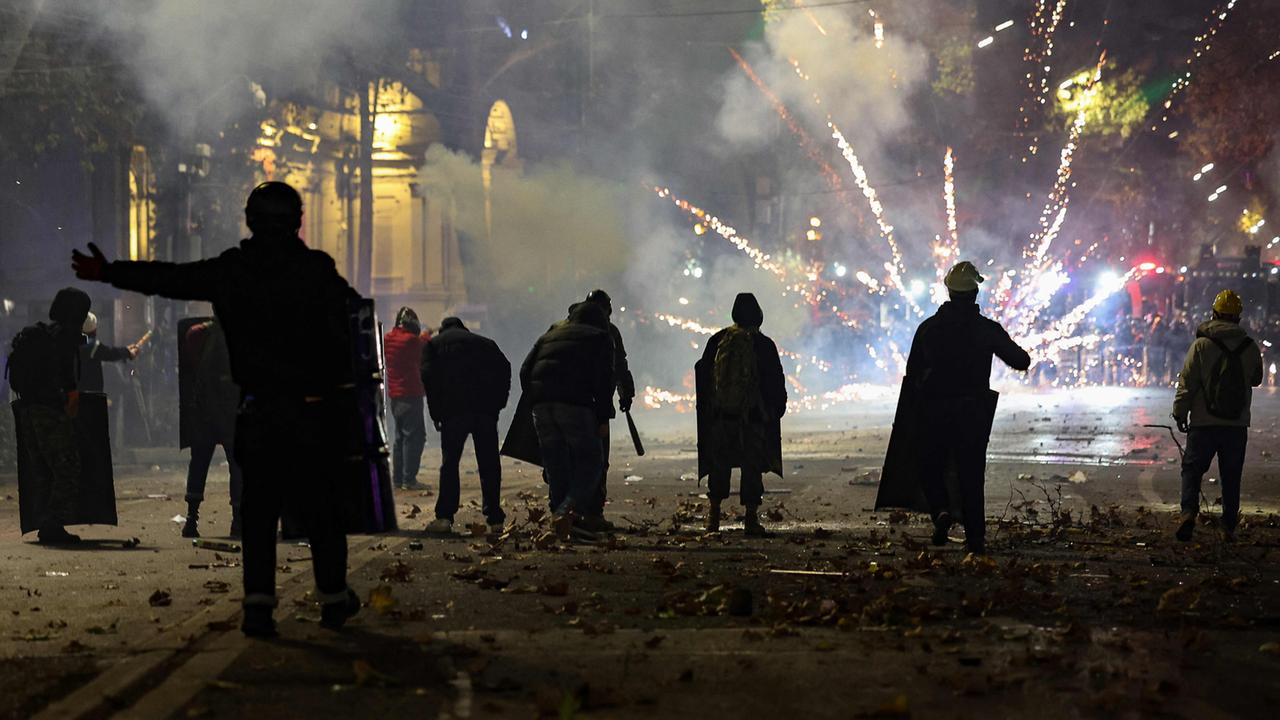Thousands demonstrated in Georgia against the Russia-friendly government for the sixth day in a row. There were riots again. The human rights ombudsman speaks of systematic violence.
Despite threats of punishment from Georgian Prime Minister Iraqi Kobachidze, thousands of people took to the streets in Georgia for the sixth evening in a row to protest against the Russia-friendly government's postponement of EU accession negotiations. The demonstrators gathered in front of the parliament in the capital Tbilisi and waved the flags of Georgia and the EU.
Some protesters set off fireworks towards the building. The police used a loudspeaker to call on the protesters to disperse the demonstration. She then used water cannons and tear gas again – among other things, to stop demonstrators from climbing over the walls of the parliament building. Independent Georgian television channels reported arrests.
Ombudsman accuses police of “act of torture”
The pro-European President Salome Zurabishvili described the police's actions on the online service X as “disproportionate”. She criticized “massive arrests and poor treatment.” According to the Interior Ministry, a total of 293 people have been arrested since the start of the latest wave of protests. 143 were injured.
Georgian human rights ombudsman Levan Ioseliani said that most of the injuries sustained by protesters “concentrate on the face, eyes and head.” The location, nature and severity of the injuries “strongly suggest that police are using force against citizens as a punitive measure,” which “constitutes an act of torture,” he added.
Premier: opposition groups consciously use violence
The Georgian Interior Minister, however, accused the protesters of throwing “various types of blunt objects, fireworks and flammable objects” at law enforcement. Prime Minister Kobachidze had previously accused opposition groups of deliberately using violence during the massive protests against the government.
Yesterday he also threatened to punish political opponents. Opposition politicians had “staged the violence in the past few days,” he said at a press conference. Even non-governmental organizations could not escape the responsibility established by law.
Postponement of the EUAccession negotiations until 2028
The massive protests in the Caucasus country began on Thursday evening. They are particularly directed against the postponement of the country's EU accession negotiations until 2028, announced by Kobachidze. According to the Interior Ministry, more than 220 demonstrators have been arrested since the protests began. Several dozen demonstrators, journalists and security forces were injured.
Georgia has officially been a candidate for EU membership since December 2023. Since then, however, the pro-Moscow government has passed several laws that are causing great concern in Brussels, including a Russian-style law against “foreign influence.” The EU therefore froze the accession process with Georgia at the end of June. The opposition accuses the government of wanting to remove Georgia from the EU and bring the former Soviet republic closer to Russia.




